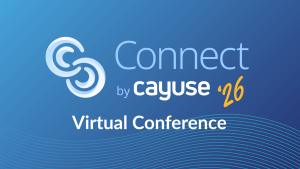Blog
Avoiding Audit Findings: Examples of Grant Fraud and How to Prevent It
In grant award audits, fraud is a key consideration. Let’s talk about audit findings related to defrauding government funds.
Types of grant fraud
According to the National Science Foundation (NSF)’s Possible Grant Fraud Indicators handbook, fraud related to grant awards is often hard to detect. It could include any of the following:
- Deception
- Bribery (bribing someone to get a certain research result or protocol approved, for example)
- Forgery (such as forging someone’s signature on a grant proposal)
- Extortion
- Theft
- Conspiracy
- Embezzlement
- Misappropriating funds for personal purposes
- False representations or statements
- Concealing material facts
- Collusion
Other examples of possible fraudulent activity include commingling grant funds with other funds, and submitting false or altered documents when requesting reimbursement from the funding source.
Grant fraud: examples of recent audits
Unfortunately, grant fraud occasionally takes place within research institutions. Mostly, our nation’s research-focused institutions are excellent stewards of their grant funds. However, two recent findings summarized below illustrate that in rare occasions, grant fraud does exist.
Audit Finds Morgan State University Defrauds NSF Funds
A professor at Morgan State University was found to have fraudulently obtained research grants from the National Science Foundation.
According to the findings, the faculty member received $200,000 in grant funds for a highway project. It was found that the faculty member used the money to pay personal expenses, and he was sentenced to three years in prison.
Florida State University Faculty Defrauds NASA Funds
A former University of Florida nuclear engineering professor fraudulently obtained government contracts from NASA. The funds were part of research conducted by FSU’s Innovative Nuclear Space Power and Propulsion Institute. Documents allege the researchers submitted fraudulent invoices that included intentional overpayments to the main faculty member, underpayments to researchers, and non-payments to some workers. He was sentenced to six months in prison.
Preventing grant fraud audit findings
Again, it’s important to note that defrauding government funds isn’t typical. The majority of the nation’s research focused institutions manage grant awards properly.
To prevent fraudulent activities, research organizations can adopt specific practices, such as:
- Bank statement reconciliations
- Developing a compliance program
- Regular conflict of interest disclosures and reviews
- Data analysis
- Keeping thorough documentation
- Internal controls
- Ensuring there are open lines of communication
- Risk assessment
- Suspension and debarment
- Training
- Whistleblowing
Throughout the lifecycle of a grant, it’s critical to carefully review all aspects of financial reporting, from bank statements to internal controls and communications. Training is also key, so all involved can have a shared understanding of appropriate behaviors.
Many institutions turn to a research management system to help manage this process and avoid unfavorable audit findings. Automated systems offer built-in controls, documentation, and compliance reporting. To learn more about Cayuse’s solutions, including compliance software to make processes easier, contact us today.
Adapted from Jim Wrenn’s SRA International North Carolina Chapter Meeting presentation, “Review of Recent Audits and Fraud Cases.”

